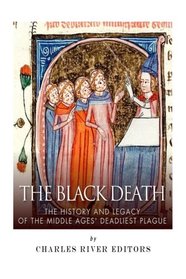This book talks about the High Middle Ages, during which travel and trade increased. This brought the Black Death to Europe. Because of the rudimentary understanding of medicine at the time, many looked at the Plague as divine retribution for people's sins, while others thought minority groups were causing the huge number of deaths. Those groups were persecuted. Some people named the Jews as being the killers of Christians because they didn't understand that the Jew's health rules meant that they lived cleaner than the other people, and they had many fewer deaths.
These millions of deaths radically changed European societies. There was a break-down in families (it became a moral dilemma as to whether to stay and care for a dying relative and die too or to leave and save yourself) and communities (there were few people left to help prepare the bodies for burial and to attend the funerals). The massive deaths lead to the unbelievable transfer of wealth from the dead to whomever still lived.
This is the second book I've read about the Black Death; this version is less worried about where the illness came from and more about the effects of the massive deaths to the cities and countries experiencing these colossal numbers of deaths. The book mentions that the Church was without enough priests to serve the spiritual needs of the communities, so this, with other changes in the countries, led to more secular attitudes and contributed to the Protestant Reformation.
These millions of deaths radically changed European societies. There was a break-down in families (it became a moral dilemma as to whether to stay and care for a dying relative and die too or to leave and save yourself) and communities (there were few people left to help prepare the bodies for burial and to attend the funerals). The massive deaths lead to the unbelievable transfer of wealth from the dead to whomever still lived.
This is the second book I've read about the Black Death; this version is less worried about where the illness came from and more about the effects of the massive deaths to the cities and countries experiencing these colossal numbers of deaths. The book mentions that the Church was without enough priests to serve the spiritual needs of the communities, so this, with other changes in the countries, led to more secular attitudes and contributed to the Protestant Reformation.




